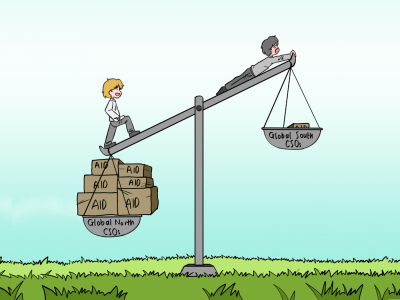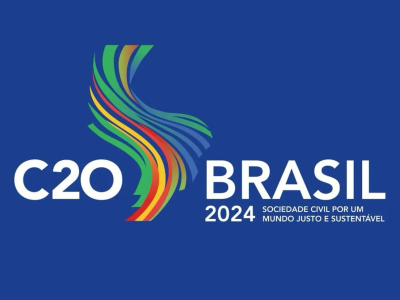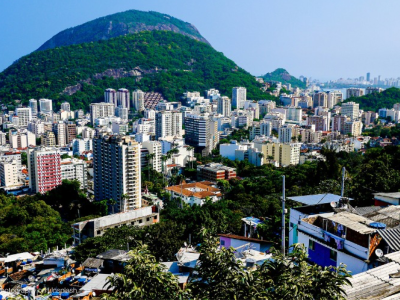According to a mapping of independent donor organizations carried out by the Comuá Network in association with the ponteAponte consultancy service, there are currently 31 organizations in Brazil supporting initiatives in the field of socio-environmental justice
By: Cristina Orpheo and Graciela Hopstein*
Traditional, indigenous, quilombola, and riverside communities, as well as communities living on the outskirts of major Brazilian cities and political minorities in general, are the social groups most affected by the climate crisis. This is already a tangible fact in Brazil. We need only look at the extreme climate events that have intensified recently: from the current unprecedented drought in the Amazon, which has put the health and livelihoods of territory’s populations at risk, to the heavy rains and tornadoes that have caused nearly a hundred deaths on the northern coast of São Paulo and in Rio Grande do Sul.
On the other hand, these groups are also the main protectors of the forests and act in the defense of the environment, their territories and natural resources, often suffering threats to their lives, which broadens and further aggravates the social and political impacts caused by the climate crisis.
Even though they are at the heart of this issue, for a long time, the leaders of these groups were left out of the Climate COPs’ debates and decision-making processes. Within this context, philanthropy can play a crucial role in tackling the climate crisis, as it seeks to strengthen the groups and political minorities acting on the frontlines, with financial support, encouraging the creation and implementation of local solutions, in line with what they deem to be priorities, to generate the necessary transformations within their communities and territories.
And we are not referring here to mainstream philanthropy, but to community philanthropy, understood as a practice based on the transformative power of grassroots movements, groups and organizations present in all Brazilian biomes, which play a critical role in regulating the planet’s climate. It is important to highlight the strategic, distinctive position that independent philanthropy for socio-environmental justice holds when it focuses on supporting civil society, recognizing its leading role in the processes of socio-environmental transformation.
According to a mapping of independent donor organizations carried out by the Comuá Network in association with the ponteAponte consultancy, there are currently 31 organizations in Brazil supporting initiatives in the field of socio-environmental justice. These initiatives work to democratize and ensure access to financial resources for the development of initiatives capable of implementing local solutions to the challenges faced by the communities, thereby contributing to recognition of and access to rights, especially for political minorities.
While in the context of the climate emergency promises of donations are made on an growing scale – many originating from international cooperation and philanthropy – local populations and organizations working with climate finance argue that a significant share of the resources do not reach them directly.
At COP26, for example, several countries and organizations – the UK, the US, Germany, Norway and the Netherlands, along with 17 foundations – announced the Indigenous Peoples and Local Communities’ Forest Tenure Pledge, a commitment to donate US$1.7 billion from 2021 to 2025 so that indigenous peoples and traditional communities can continue to defend their territories, which is deemed crucial in the fight against the climate crisis.
A year after the announcement, the initiative’s annual report shows that US$321,629,749 were donated, half of which (51%) went to international NGOs that operate projects with indigenous peoples and traditional populations. Governments took 17% of this amount, followed by a regional agency or fund (8%). Only 7% of the funds went directly to indigenous and traditional peoples’ organizations.
In the context of COP28, to be held in Dubai as of November 30, the Business and Philanthropy Climate Forum will be held, a global meeting of business and philanthropic leaders on climate and nature. The purpose of the meeting is to promote cross-sector integration so that the actors involved can cooperate with the development of proposals and results to meet the goals of zero net emissions and positive actions for the environment.
Around the world, many factors still make it difficult for climate finance to reach local communities: the complexity of the financing processes, difficulties to access information, language barriers, political tensions, among others.
Solving these problems requires an integrated approach between various actors, including community-based civil society, which must be at the forefront of this dynamic. At the same time, providing accurate information about the financing processes and coordinating efforts to ensure that the resources reach these communities in a decolonized manner are strategic actions to tackle the climate crisis.
Local independent donor organizations play a critical role in ensuring that resources land where they need to and should. These organizations directly support initiatives developed by local communities and have a successful track record in doing so.
These donations are more agile and flexible than other forms of financing, allowing for a faster, more effective response to local climate challenges. These funds are not project executors, but contribute as partners to the transformation process by mobilizing and donating resources so that civil society groups, leaders and organizations can implement the solutions they believe to be necessary and a priority for their realities.
The big question that the international field is asking is how to make the resources come, and there are readily accessible solutions to make this happen. The independent donor organizations that make up the Comuá Network, for example, are one possibility. They donate millions of dollars to thousands of community-based groups, working with all of the most important social and environmental justice issues. And each of these grants grows more and more directly linked to climate justice, which is the great challenge of our time.
Donating to make solutions possible for the communities, movements and groups that are most heavily impacted by the effects of climate change, and also who contribute the most to their mitigation, is clearly a human rights agenda, and one that is critical in Brazil. Only with a society whose voice and effective participation are ensured can there be climate justice.
Cristina Orpheo is the executive director of the Casa Socio-Environmental Fund. She has a degree in Business Administration and a postgraduate degree in social project management, the third sector and environmental management. She has 20 years of experience in project development and management, strategic planning and resource mobilization. For the last 13 years, she has worked in grantmaking in support of traditional and local populations, and in the field of national and international philanthropy.
Graciela Hopstein is the executive director of the Comuá Network. She has a master’s degree in education (UFF) and a PhD in Social Policy. She is a consultant, teacher and researcher in the social field. She has written articles and books on public policies, social movements and philanthropy.
Philanthropy: the Business and Philanthropy Climate Forum will take place within the scope of COP28, to be held in Dubai as of November 30. — Photo: Getty Images
Translation: Dayse Boechat
Originally published here: https://umsoplaneta.globo.com/opiniao/post/2023/11/financiamento-climatico-sociedade-civil-e-a-agenda-de-direitos-reflexoes-sobre-a-filantropia-comunitaria.ghtml







